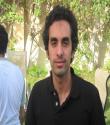In an interesting story called “The Emperor’s New Clothes,” Danish author Hans Christian Andersen tells the story of an emperor who wanted to know which of his officers were not worthy of their positions.
Two imposters brought him new clothes they had made especially for him. They told the emperor the clothes would not be visible to the fools who worked for him — but the wise would see it perfectly. Of course, the two impostors gave the emperor nothing but air.
Neither the emperor nor any of his cortege could see the new clothes but they did not say so, lest they appeared foolish. So the emperor strutted around in his new clothes, which nobody could see.
Everyone pretended to see the clothes. “Are we all fools?” they wondered.
Then, a little child who did not know the story of the new clothes came along. His brain was a pure one; his innocence had not been tampered with.
The child exclaimed that the emperor had no clothes on. The emperor looked at his naked body before leaving in a hurry.
This is a children’s story but it sums up a deep problem in societies, known in sociology as pluralistic ignorance. People do not see the clothes but won’t say so. They can’t all be fools while I am the only wise one, they think.
And so the emperor’s new clothes are splendid, while I am the only fool.
In 1986, researchers John Darley and Bibb Latane designed an experiment to test the phenomenon of pluralistic ignorance, inviting students from Columbia University to study an illusory topic on wildlife.
While waiting for the meeting, the students saw intense smoke coming from a room next to theirs. The fire was not real; it was just part of the experiment to test the students’ responses.
The researchers staged the same emergency situation under two different conditions. In the first, people planted in the group were working with the researchers and knew the fire was fake, but did not tell the other students. The agreement was for them not to show any response to the fire.
Curiously, the students who were under examination ignored the fire when they saw the lack of response, with only one student reporting the fire. In the second scenario, when the researchers had no one planted in the group, the response was more natural, and all of the students immediately reported the fire.
In their impressive book, “The Unresponsive Bystander: Why Doesn’t He Help?” Darley and Latane reviewed several experiments that demonstrate this pattern of pluralistic ignorance in human groups. For a person to break the circle of unresponsiveness, he or she must be like the child in Andersen’s story.
The Muslim Brotherhood and President Mohamed Morsy represent an extreme case of pluralistic ignorance resulting from exercising political work with the mindset of a closed group. The Brotherhood needs to develop the skill of listening more seriously to those who do not belong to the group intellectually or organizationally.
A basic precondition for political development is to resort to outsiders who will be able to judge matters more clearly. I would also like to emphasize the importance of serious listening, as opposed to listening that is marred by paranoid obsessions with conspiracy, regime overthrow and hate, or the kind of listening manifested in the farcical so-called national dialogue sessions.
It will not be useful for the Brotherhood to fight windmills or to antagonize all parties in the political game, even those who stand by the Brotherhood. The ability to be open to criticism is a sign of grandeur.
Omar Ibn al-Khattab, Prophet Mohamed’s companion and a Muslim caliph, used to say, “God bless the one who gifts to me my defects.” When a scholar was once asked why he abandoned people, he said, “And what would I do with people who hide my defects!”
Sherif Salem is an economist who holds a master’s degree from Queen Mary University, London. His current interests are political economy and moral philosophy.



